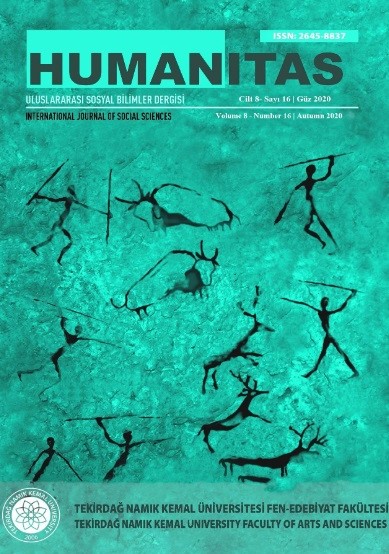OSMANLI-TÜRK MODERNLEŞME SÜRECİNDE SİYASAL İSLAMCILIK İDEOLOJİSİ: KÜLTÜRELCİ ANALİZLERİN ÖTESİ VE MODERNLEŞMENİN İSLAMCI YÜZLER
POLITICAL ISLAMISM IN THE OTTOMAN-TURKISH MODERNIZATION PROCESS: BEYOND CULTURALIST ANALYSIS AND ISLAMIC ASPECTS OF MODERNIZATION
Author(s): Fuat GüllüpınarSubject(s): Islam studies, Politics and religion, The Ottoman Empire
Published by: Namık Kemal Üniversitesi Fen-Edebiyat Fakültesi
Keywords: Ottoman-Turkish modernization; Islamism; Neo-Ottomanism; ideology; developmentalism;
Summary/Abstract: This article attempts to explain the ideology of Islamism in relation to the socio-economic and political conditions of the nineteenth century Ottoman society. Analysis of Islamism through socio-economic and other social levels enables us to separate our evaluations of it from religious conservatism and makes it possible to evaluate it through more concrete social and political circumstances. The emergence of Islamism was not a renewal movement aimed at returning to the authentic tradition, but a response from the upset and impoverished Muslim people and intellectuals in the face of unsuccessful modernization attempts in the third world. Islamism was an inspiration for the Neo-Ottoman movement, which resisted modernization in the sense of westernization, but also tried to keep up with modernization. Established under the leadership of Namık Kemal, Ali Suavi, Ziya Pasha, the Neo-Ottoman movement sought a new form of power in the name of “hybrid” Islamic values during the nineteenth century without touching the dominant power relations of modernization.
Journal: Humanitas - Uluslararası Sosyal Bilimler Dergisi
- Issue Year: 8/2020
- Issue No: 16
- Page Range: 206-230
- Page Count: 25
- Language: Turkish

